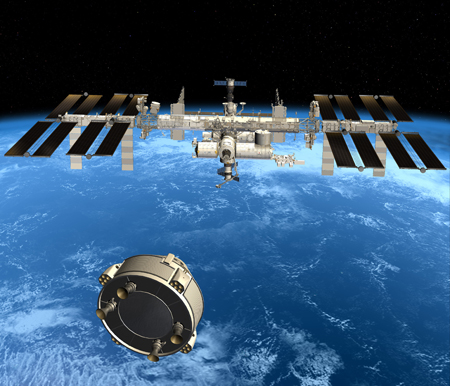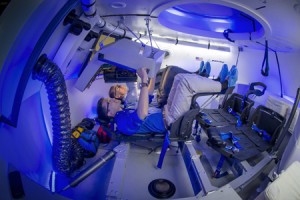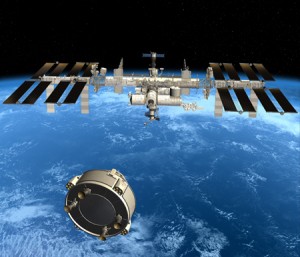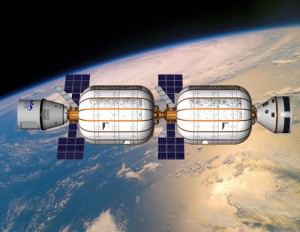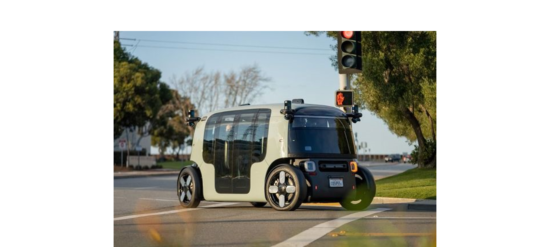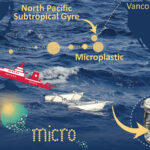May 18, 2014 – The timing is interesting with a Boeing providing a sneak preview of its crew capsule coming the same week that Russia’s space program announced plans to pull the plug on contracts with the United States military for rocket engine purchases, and end American rides on Soyuz to the International Space Station (ISS) by 2020.
The capsule is officially known as the Boeing Crew Space Transportation 100 Vehicle or CST-100. Boeing has partnered with Bigelow Aerospace, the company building inflatable modules for space hotels and future lunar colonies. One of these modules is scheduled for testing on the ISS in 2015.
The CST-100 is not a Bigelow-inspired inflatable but a seamless hard bodied capsule that has roughly the same conical shape as the Apollo spacecraft. But unlike Apollo it can fly up to 10 times and can be brought back to land on earth rather than water. It carries a crew complement of seven or a lesser number plus supplies. The shot below shows the mockup of an interior layout. This is the non-commercial version. Boeing and Bigelow plan a much more luxurious model for future commercial flights to the Bigelow Alpha Station, the first private space station.
CST-100 uses “innovative weld-less design” and has its own push rockets for escape in case of rocket launch failure. Apollo had a front mounted escape rocket mated to the capsule in case of emergency. The U.S. Space Shuttle didn’t provide that margin of safety which was a terrible mistake.
The on board rockets on CST-100 will also be used for navigation while in orbit. Boeing has also equipped the spacecraft with state-of-the-art commercial aircraft emergency systems. It has auto pilot but the crew can fly it manually as well. All lighting is LED and the computer and networking technology on board is up to date taking advantage of the latest commercial advances.
A CST-100 can stay docked in orbit up to six months. Upon return to Earth it will be refurbished for relaunch. Right now CST-100 is compatible for mating with an Atlas V rocket, the same rocket used to launch Curiosity Rover on its flight to Mars. Atlas V has never been used for human space flight. And there may be only a limited supply of them in the future based on Russia’s announcement that it no longer intends to supply the rocket engines used by the launcher. As a result Boeing may be looking elsewhere to get CST-100 aloft with SpaceX Falcon 9 and Falcon Heavy potential candidates. But neither of those two launchers have been tested for human spaceflight, and the Heavy has yet to fly.
The current Boeing-Bigelow schedule has an unmanned launch of CST-100 expected as early as 2016 with a crewed flight to follow. This would be subject to NASA approval and funding. I suspect the pressure is on NASA to find an alternative to Russia based on this week’s announcements. The CST-100 first crewed flight will have a complement of two astronauts plus supplies for the ISS. An artist rendering of that mission can be seen in the illustration below.
But Boeing isn’t just counting on the ISS as a destination for the CST-100. In working with Bigelow it has “bigger” plans. These include commercial flights to the yet to be launched Bigelow’s Alpha Station which may be in orbit by 2016 as well.
Bigelow recently released a price book for long-term stays on board Alpha Station which will offer a microgravity environment for those doing commercial research and development. Target customers include biotech and pharmaceutical companies with per seat rates for 10 to 60 day stays ranging from $26.25 to $36.75 million U.S. And Bigelow plans to lease up to 110 cubic meters of space on Alpha Station for $25 million U.S. And companies that want to run individual experiments on board will be charged $500,000 for two-months.

